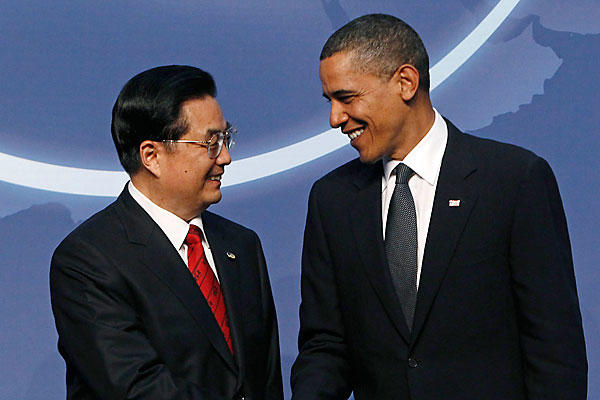
Five years and one financial crisis since the United States and China commenced(开始) regular high-level economic talks, fast-growing Beijing might have the upper hand this week in the latest round of discussions between the world's two biggest economies.
China faces threats of penalties(惩罚) against goods shipped to its largest foreign market unless it does more to end what U.S. manufacturers say are unfair trade practices, including currency manipulation(货币操纵), that have cost American jobs.
At the same time, America's biggest foreign creditor(债权人) wants assurances(担保) that its $1.2 trillion(万亿) in U.S. Treasury holdings(国库券) are safe despite uncertainty in Washington over how much money the U.S. can borrow to pay its bills. If Congress fails to increase that borrowing limit before August, that probably would send interest rates soaring and reduce the value of those Chinese investments.
While analysts don't foresee major breakthroughs(突破性进展) at the talks Monday and Tuesday, China's expanding economic might will give it greater leverage(杠杆作用) now.
"The focus has shifted to making methodical if slow(缓慢而有条理的) progress," possibly reflecting a maturing relationship between the two nations, said Eswar Prasad, a China expert at Cornell University.
Leading the Obama administration's delegation at the Strategic and Economic Dialogue are Treasury Secretary Timothy Geithner and Secretary of State Hillary Rodham Clinton. Federal Reserve Chairman Ben Bernanke and officials from 16 federal agencies are attending, too.
The Chinese team is headed by Vice Premier Wang Qishan, a top economic policymaker, and includes officials from 20 government agencies.

